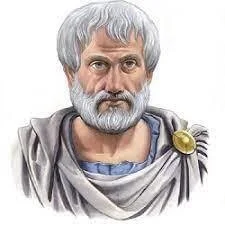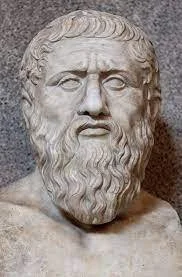History of psychology
Test preparation
Aristotle, Aristotle concept of para-psyche, Choleric, Early History or Greek period, four humors of galen, Galen, Galen contribution in psychology, Galen four humors, History of Psychology, Introduction of Psychology, Knowledge is innate by plato, Melancholic, Mind body problem concept of galen, Parapsyche concept of aristotle, Phlegmatic, Plato, Psychology, Psychotherapy, Sanguine, What is Psychology?
Usman Shoukat
0 Comments
What is Psychology? Introduction and history of Psychology
Introduction:
The word psychology comes from two Greek Word Psyche, meaning “spirit” or “soul”. The second part of the word “psychology” comes from logic, which refers to “study” or “research”. So that means psychology is the study of spirit or soul. The Latin word psychology was first used by the Croatian humanist and Latinist Marko Marulić. They use in his book entitled “Psychology on the Nature of the Human Soul” in the late 15th or early 16th century.
History of Psychology
Early History or Greek period
If we define psychology, as the formal study of the mind and a more systematic approach to understanding and treating mental conditions, then the ancient Greeks were certainly leading proponents. Scientific studies show that Aristotle is considered the first person to develop the foundations of psychology. Aristotle’s psychology, as one might expect was intertwined with his philosophy of mind, reasoning, and Nicomachean ethics.
Aristotle Psychology

Aristotle (384 BC – 322 BC) should given full credit for being the first thinker/scholar to develop the theory of proto-psychology, unfair to another philosophers from Greece. However, no doubt that the Babylonians and Buddhists, among others developed concepts involving mind, thought, and reasoning. Much of their tradition was passed down orally and is lost. For this reason, the ancient Greeks provide useful starting point as we delve into the history of psychology.
Aristotle’s contribution in psychology:
1. Para Psyche
His work as earlier philosopher and their studies of the mind, reasoning and thought, wrote the first known text in the history of psychology, called the Para-Psyche. In this concept (Para-Psyche) Aristotle’s psychology proposed that the mind was the “first entelechy,” or primary reason for the existence and functioning of the body. He proposed that there are three types of souls defining life: –
1. The soul of the plant
2. Animal soul
3. The human soul
Above three mankind a unique capacity for reason and creativity. Interestingly, this human soul was the ultimate link to the divine, and Aristotle believed that mind and reason could exist independently of the body.
Psychology of Impulses and Compulsions
Aristotle try to address the relationships between impulses and drives in the human mind. After Aristotle, Freud also admit many of the basic principles of Aristotle’s psychology with his theory of psychoanalysis. Aristotle believed that alongside the ‘Libido’ are the ‘Id’ and the ‘Ego’, the idea of desire and reason, the two forces that determine actions.
Aristotle’s psychology suggested that allow desire to dominate reason would lead to unhealthy imbalances and tendency to do wrong actions. Here, Aristotle’s thinking created a model that remained unchallenged centuries and still foster the work of modern psychology. Philosophy, where desire is renamed emotion and reason as rationality.
Galen
Galen was a Greek physician, surgeon and philosopher of the Roman Empire. One of the most respected medical practitioners. Galen developed various scientific disciplines. These are anatomy, physiology, pathology, pharmacology, and neurology, as well as philosophy and logic.
Galen’s contribution to psychology:
1. A mind-body problem
Galen believed that there was no difference between the mental and the physical. This was a controversial argument at that time. Galen agreed with some Greek philosophers in believing that mind and body were not separate. He believed that he can approved scientifically. Here his opposition to the Stoics was most prevalent. He proposes organs in the body are responsible for specific functions. According to Galen, the Stoics’ lack of scientific justification discredited their claims about the separation of mind and body. That so why he opposed them so strongly.
Galen’s four humours
Galen used the term “humor” in the human body, humor is responsible for another aspect of the human. He admitted that an imbalance between these four would affect physical and mental well-being.
Galen’s four humors are as below:
1. Sanguine: first Blood bile, related to the element of air and liver, rules courage, hope and love.
2. Choleric: secondly yellow bile, linked with the element of fire and the gall bladder, can also lead to bad mood and anger.
3. Melancholic: third Black bile is responsible element of earth and the spleen, leads to insomnia and irritability if it predominates in the body.
4. Phlegmatic: Its Associated with the element of water and the brain, the phlegmatic was responsible for rationality but would dull the emotions if it became dominant.
Psychotherapy
Another of Galen’s major contribution is Psychotherapy, Diagnosis and Treatment of the Soul and mental problems. His book contained instructions on how to counsel people with psychological problems. Help to get them to reveal their deepest passions and secrets and ultimately heal them.
He thinks that the therapist must be a man, if possible older, wiser, aged, and also free from the control of the passions. These passions, according to Galen, caused the psychological problems that people experienced.
PLATO

Plato was an ancient Greek philosopher, born in 427 BC and died in 347 BC. He was not only the student of Socrates but he is also a teacher of Aristotle. Plato was the founder of first ever university in Athens called the Academy. He contributed greatly to the field of philosophy and provided the foundation for psychology with his brilliant ideas and theories.
PLATONIC CONTRIBUTIONS TO PSYCHOLOGY
Some of his contributions are mentioned below.
1. Knowledge is innate
Plato proposed that knowledge is innate. It remains in one’s mind. It means people already know about every thing they don’t get it. They are born with the ability to understand of the world around them. we can it called the concept of innate ideas that are present in our minds at birth.
According to Plato, we can gain this knowledge by looking within. This method is called introspection, in which internal reflection or observation is enhanced and external observation is discouraged. Plato further postulated that if we want to gain true knowledge, we must look into our own mind and soul.
According Plato’s ideas are the true source of knowledge, and since ideas reside in the mind and soul of man, the true knowledge can only be obtained through empiricism and observation of facts. In this way one can find solutions and explanations.
Share this content:












Post Comment